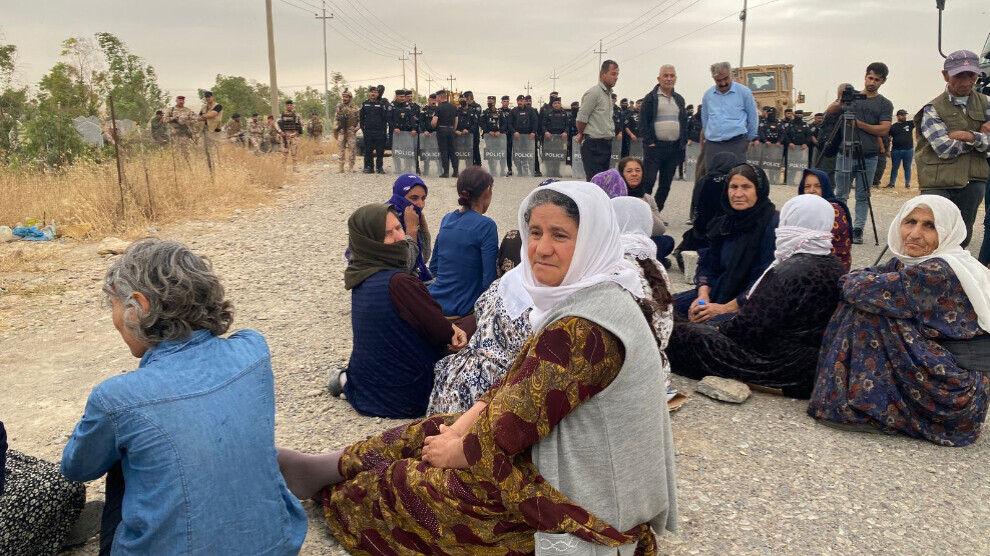Maxmur people continue their resistance amidst an attack by the Iraqi army
One resident was injured as Iraqi security forces used live ammunition during protests against the fencing of the Maxmur Camp.
One resident was injured as Iraqi security forces used live ammunition during protests against the fencing of the Maxmur Camp.

Early on Saturday morning, a delegation from the Iraqi Ministry of Interior and Defence arrived in Maxmur without prior notice to have a fence installed around the self-managed camp. The delegation was accompanied by Iraqi military personnel, including special forces, and police. The security forces arrived at the camp with dozens of armoured vehicles to enforce the order. Several conditions are to be met for this to happen: the fencing of the camp, the deployment of Iraqi police and military units, the closure of all entrances and exits except for the main access, the installation of concrete military barriers on the access road and the installation of observation towers in the area.
While the people of Maxmur are resisting the attempt to fence off the camp, members of the Iraqi army and police fired warning shots into the air to disperse demonstrators, injuring one of them.
The injured resident is reported to be undergoing surgery in the camp's own clinic. The protesters reacted to the incident by throwing stones. The situation remains tense.
The Maxmur People's Council suspects that this sudden manoeuvre by the Iraqi army could be a signal for a wider political plan and sees the source of the action in Ankara. The Turkish state calls the camp a "breeding ground" for the PKK and repeatedly threatens to "cleanse" it. In the past, there have been repeated Turkish airstrikes on Maxmur, most recently last August, when a father of six was killed by a drone. In an air strike three months earlier, a civilian was also fatally injured by the Turkish army. These war crimes have remained without consequences to this day. The attacks were followed by several attempts by the Iraqi authorities to close off the camp with barbed wire fences - which ultimately failed due to the resistance of the residents.
In recent years, similar attempts to fence the camp in with barbed wire have failed due to the resistance of the people. Maxmur Camp is located about 60 kilometres southwest of Hewlêr (Erbil), the capital of the Kurdistan Region of Iraq. More than 12,000 people live in the camp. Most of them were forced to leave their villages in Northern Kurdistan in the 1990s due to the repression of the Turkish state and the scorched-earth policy. After an odyssey of several years and stays in various camps, they founded the Maxmur Camp on the edge of the desert in 1998. The camp population thus forms the largest Kurdish refugee community worldwide.
The grassroots-democratically organised and self-governing camp is a thorn in Turkey's side. In recent years, there have been repeated air strikes on Maxmur, most recently in August 2022, when a father of six was killed by a drone. In an air strike three months earlier, a civilian was fatally injured by the Turkish army. These war crimes have remained without consequences to this day.
Officially, Maxmur is under the protection of the UNHCR, but in practice the UN is only nominally present. The organisation left the camp during the attacks by ISIS in 2014 and did not return afterwards.